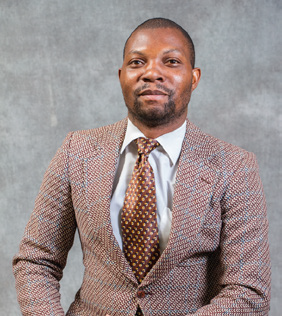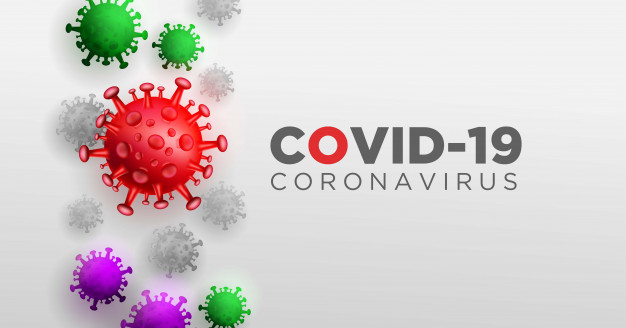Can CEOs afford to continue globetrotting and flying for business deals whilst generating air emissions
and at the same time fight for their health during the COVID-19 pandemic?
Emergence of the new novel COVID-19 virus in Wuhan, China remains one of the leading complexities that humanity has faced this
century. The first half of the year 2020 has seen the casualties and the infection increasing in many different parts of the world.
Most countries have experienced lockdowns, social distancing, severe illness in populace and subdued economic development. At the beginning of the year
many companies had planned to achieve many goals and strategies. This has been impossible due to the subdued business activity caused by the
novel COVID-19 virus. Amongst some of the projects that were earmarked to be undertaken include environmental projects. These range from
pollution prevention, waste management, recycling and renewable energy projects. How could these projects be implemented when public health is at risk? Slowly
companies are trying to pick themselves up in the context of their countries emergency response plans.
New solar plants could not take off even in areas where sunshine is abundant.Waste heaps of garbage also accumulated in many countries which used to be well
organised in waste management. Business profitability has also been affected by the pandemic, leading to millions filing for unemployment benefits. As
governments work out rescue packages, new business models are required in order for companies to understand that virtual working will become part of us
for a long time to come. A paradox of the situation is the fact that global emission levels started to go down in some parts of the world due to reduced industrial
level. Although we don’t celebrate the low economic activity during the pandemic, the struggle has taught us that we can forge a New Green Deal. The New Green Deal should be based on a
low emission development strategy and a carbon based economy. Some of the lessons drawn from the lockdown phase e.g. teleworking, virtual board meetings
and sourcing locally-made raw materials;could be scaled up beyond the COVID-19 pandemic. An interrupted international supply chain should teach us lessons
that sustainable local procurement is possible. Can CEOs afford to continue globetrotting and flying for business deals whilst generating air emissions in the
context of COVID-19? New models of business partnership will be necessary to broker business deals in the wake of COVID-19 to be both profitable and safe.
An ambitious global village also set the Sustainable Development Goals (SDGs) in 2015, setting the framework for achieving 17 Goals and 169 targets by the year 2030. The year 2020 has
severely dented the prospects of attaining the SDGs. How will it be possible to attain the SDGs when social distancing is a new norm? When the SDGs were crafted, did they consider
this prospect? The year 2020 has shown us lessons that as the world plans for the future, the whim of uncertainty is always there to confirm that we are mortal beings. The orientation
of Sustainable Development Goals(SDGs) should take a closer look at the unfolding COVID-19 crisis and adjustments will have to be made at global level. New realistic targets may
need to be looked at in the context of a socially distanced community. Business leaders must begin to see the prospects of renewed hope and put the safety of
employees first. With a fragile health prospect at global level due to the COVID-19 crisis, there is need to get serious on environmental protection to avoid a double jeopardy of development
problems.
Author
-

Tawanda Collins Muzamwese is the Editor in Chief of the Green Business Gazette Magazine. He is is an international consultant in sustainable business development with massive experience in training, consulting and auditing. He has facilitated capacity development in more than 100 enterprises drawn from over 30 countries. He is the founder of the sustainability think-tank called Toxiconsol Consultancy t/a African Sustainability Consultants. He is the Editor in Chief of the Green Business Gazette Magazine. He is a consultant and business coach with over 13 years experience. Tawanda is a Management Systems Consultant working on promoting development and implementation of ISO Standards (ISO 14001:2015, ISO 9001:2015 and ISO 45001:2018) in both developed and developing countries. With his inspirational and pragmatic writing style he has written cutting edge books including: 1) How to grow a Side-hustle into a viable business - Overcome Salary Dependency 2) The Leading Consultant: How become an authority in your professional field 3) Step-by-Step Guide to implementing Safety, Health, Environment and Quality Management Systems 4) Stepping on Higher Perspectives: Greatness Tips Motivational Series 5) Sustainability Guidebook for Boards and CEOs: Leading from the front Tawanda writes about sustainability, motivation, safety, health, environment and quality management. His books are relevant to both developed and developing countries. With practical approaches and case studies, he provides incisive insights into entrepreneurship. His philosophy is based on the premise that every human being has potential to make a significant difference in their lifetime. He writes books on taking personal responsibility for progression in life. He motivates entrepreneurs to implement income generating projects and determine their own financial destiny. He also motivates companies to take up sustainability initiatives. A start-up coach, public speaker, environmentalist, safety, health and quality management expert, Muzamwese bridges the gap between theory and practice through building capacity and sharing practical case studies in his books.
View all posts



